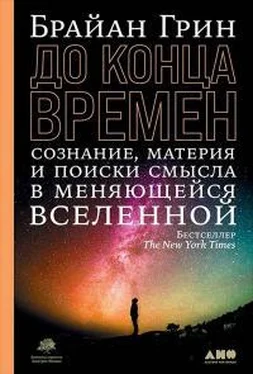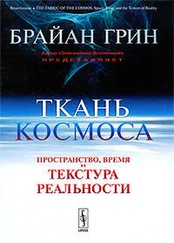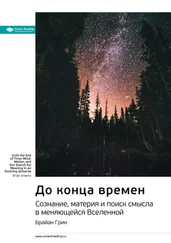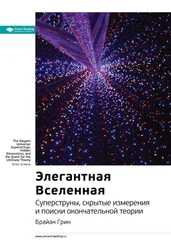5. Pinker and P. Bloom, "Natural language and natural selection", Behavioral and Brain Sciences 13, no. 4 (1990): 707-84; Steven Pinker, The Language Instinct (New York: W. Morrow and Co., 1994); Steven Pinker, "Language as an adaptation to the cognitive niche", in Language Evolution: States of the Art, ed. S. Kirby and M. Christiansen (New York: Oxford University Press, 2003), 16–37.
К примеру, как отметил лингвист и специалист по психологии развития Майкл Томаселло, «все языки мира, безусловно, имеют между собой что-то общее. Но эти общие черты исходят не из какой-то универсальной грамматики, но, скорее, из универсальных аспектов человеческого познания, социального взаимодействия и обработки информации — все это по большей части уже существовало у людей прежде, чем возникло что-либо похожее на современные языки».
Michael Tomasello, "Universal Grammar Is Dead", Behavioral and Brain Sciences 32, no. 5 (October 2009): 470-71.
Simon E. Fisher, Faraneh Vargha-Khadem, Kate E. Watkins, Anthony P. Monaco, and Marcus E. Pembrey, "Localisation of a gene implicated in a severe speech and language disorder", Nature Genetics 18 (1998): 168-70. C. S. L. Lai, et al., "A novel forkhead-domain gene is mutated in a severe speech and language disorder", Nature 413 (2001): 519-23.
Johannes Krause, Carles Lalueza-Fox, Ludovic Orlando, et al., "The Derived FOXP2 Variant of Modern Humans Was Shared with Neandertals", Current Biology 17 (2007): 1908-12.
Fernando L. Mendez et al. "The Divergence of Neandertal and Modern Human Y Chromosomes", American Journal of Human Genetics 98, no. 4 (2016): 728-34.
Guy Deutscher, The Unfolding of Language: An Evolutionary Tour of Mankind's Greatest Invention (New York: Henry Holt and Company, 2005),
15.
Dean Falk, "Prelinguistic evolution in early hominins: Whence motherese?" Behavioral and Brain Sciences 27 (2004): 491–541; Dean Falk, Finding Our Tongues: Mothers, Infants and the Origins of Language (New York: Basic Books, 2009).
R. I. M. Dunbar, "Gossip in Evolutionary Perspective", Review of General Psychology 8, no. 2 (2004): 100-10; Robin Dunbar, Grooming, Gossip, and the Evolution of Language (Cambridge, MA: Harvard University Press, 1997).
N. Emler, "The Truth About Gossip," Social Psychology Section Newsletter 27 (1992): 23–37; R. I. M. Dunbar, N. D. C. Duncan, and A. Marriott, "Human Conversational Behavior", Human Nature 8, no. 3 (1997): 231-46.
Daniel Dor, The Instruction of Imagination (Oxford: Oxford University Press, 2015).
О роли поддержания огня и приготовления пищи см.: Richard Wrangha, Catching Fire: How Cooking Made Us Human (New York: Basic Books; 2009); о групповом воспитании молодняка см.: Sarah Hrdy, Mothers and Others: The Evolutionary Origins of Mutual Understanding (Cambridge, MA: Belknap Press, 2009); об обучении и сотрудничестве см.: Kim Sterelny, The Evolved Apprentice: How Evolution Made Humans Unique (Cambridge, MA: MIT Press, 2012).
R. Berwick and N. Chomsky, Why Only Us? (Cambridge, MA: MIT Press, 2015), chapter 2.
David Damrosch, The Buried Book: The Loss and Rediscovery of the Great Epic of Gilgamesh (New York: Henry Holt and Company, 2007).
Эпос о Гильгамеше («О все видавшем») / Пер. с аккадского И. М. Дьяконова. — СПб.: Наука, 2006. C. 54–55.
Введение в теорию и принципы эволюционной психологии см.: John Tooby and Leda Cosmides, "The Psychological Foundations of Culture," in The Adapted Mind: Evolutionary Psychology and the Generation of Culture, ed. Jerome H. Barkow, Leda Cosmides, and John Tooby (Oxford: Oxford University Press, 1992), 19-136; David Buss, Evolutionary Psychology: The New Science of the Mind (Boston: Allyn & Bacon, 2012).
S. J. Gould and R. C. Lewontin, "The Spandrels of San Marco and the Panglossian Paradigm: A Critique of the Adaptationist Programme," Proceedings of the Royal Society B 205, no. 1161 (21 September 1979): 581-98.
Пинкер С. Как работает мозг. — М.: Кучково поле, 2017. С. 593.
Patrick Colm Hogan, The Mind and Its Stories (Cambridge: Cambridge University Press, 2003); Lisa Zunshine, Why We Read Fiction: Theory of Mind and the Novel (Columbus: Ohio State University Press, 2006). Готтшалл Д. Как сторителлинг сделал нас людьми. — М.: КоЛибри, 2020.
Keith Oatley, "Why fiction may be twice as true as fact", Review of General Psychology 3 (1999): 101-17.
Захватывающее описание работы Жуве см.: Barbara E. Jones, "The mysteries of sleep and waking unveiled by Michel Jouvet", Sleep Medicine 49 (2018): 14–19; Isabelle Arnulf, Colette Buda, and Jean-Pierre Sastre, "Michel Jouvet: An explorer of dreams and a great storyteller", Sleep Medicine 49 (2018): 4–9.
Kenway Louie and Matthew A. Wilson, "Temporally Structured Replay of Awake Hippocampal Ensemble Activity During Rapid Eye Movement Sleep", Neuron 29 (2001): 145-56.
Диковинные сюжеты, которые мы часто связываем со сновидениями (нарушение физических законов, логической последовательности и внутренней логики), означают, возможно, что просмотр сновидений имеет к встречам в реальном мире лишь косвенное отношение. Однако преобладание подобных нелепых сновидений, возможно, далеко не такое абсолютное, как кажется по нашим личным впечатлениям. Напротив, значительная доля наших сновидений может быть вполне реалистичной по содержанию. Antti Revonsuo, Jarno Tuominen, and Katja Valli, "The Avatars in the Machine — Dreaming as a Simulation of Social Reality", Open MIND (2015): 1-28; Serena Scarpelli, Chiara Bartolacci, Aurora D'Atri, et al., "The Functional Role of Dreaming in Emotional Processes", Frontiers in Psychology 10 (March 2019): 459.
Alfred North Whitehead, Science and the Modern World (New York: Free Press, 1953), 10.
Joyce Carol Oates, "Literature as Pleasure, Pleasure as Literature," Narrative. https://www.narrativemagazine.com/issues/stories-week-2015-2016/story-week/literature-pleasure-pleasure-literature-joyce-carol-oates Jerome Bruner, "The Narrative Construction of Reality", Critical Inquiry 18, no. 1 (Autumn 1991): 1-21.
Jerome Bruner, Making Stories: Law, Literature, Life (New York: Farrar, Straus and Giroux, 2002), 16.
Brian Boyd, "The evolution of stories: from mimesis to language, from fact to fiction," WIREs Cognitive Science 9 (2018): 7–8, e1444.
John Tooby and Leda Cosmides, "Does Beauty Build Adapted Minds? Toward an Evolutionary Theory of Aesthetics, Fiction and the Arts", SubStance 30, no. 1/2, issue 94/95 (2001): 6-27.
Ernest Becker, The Denial of Death (New York: Free Press, 1973), 97. Кэмпбелл Д. Герой с тысячью лицами: Миф. Архетип. Бессознательное. — СПб.: София, 1997.
Michael Witzel, The Origins of the World's Mythologies (New York: Oxford University Press, 2012).
Армстронг К. Краткая история мифа. — М.: Открытый мир, 2005. С. 11. Юрсенар М. Восточные новеллы. — М.: Энигма, 1996.
Читать дальше
Конец ознакомительного отрывка
Купить книгу












